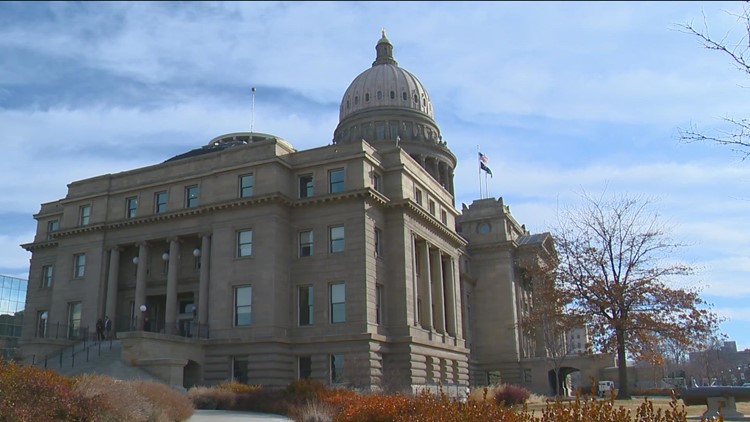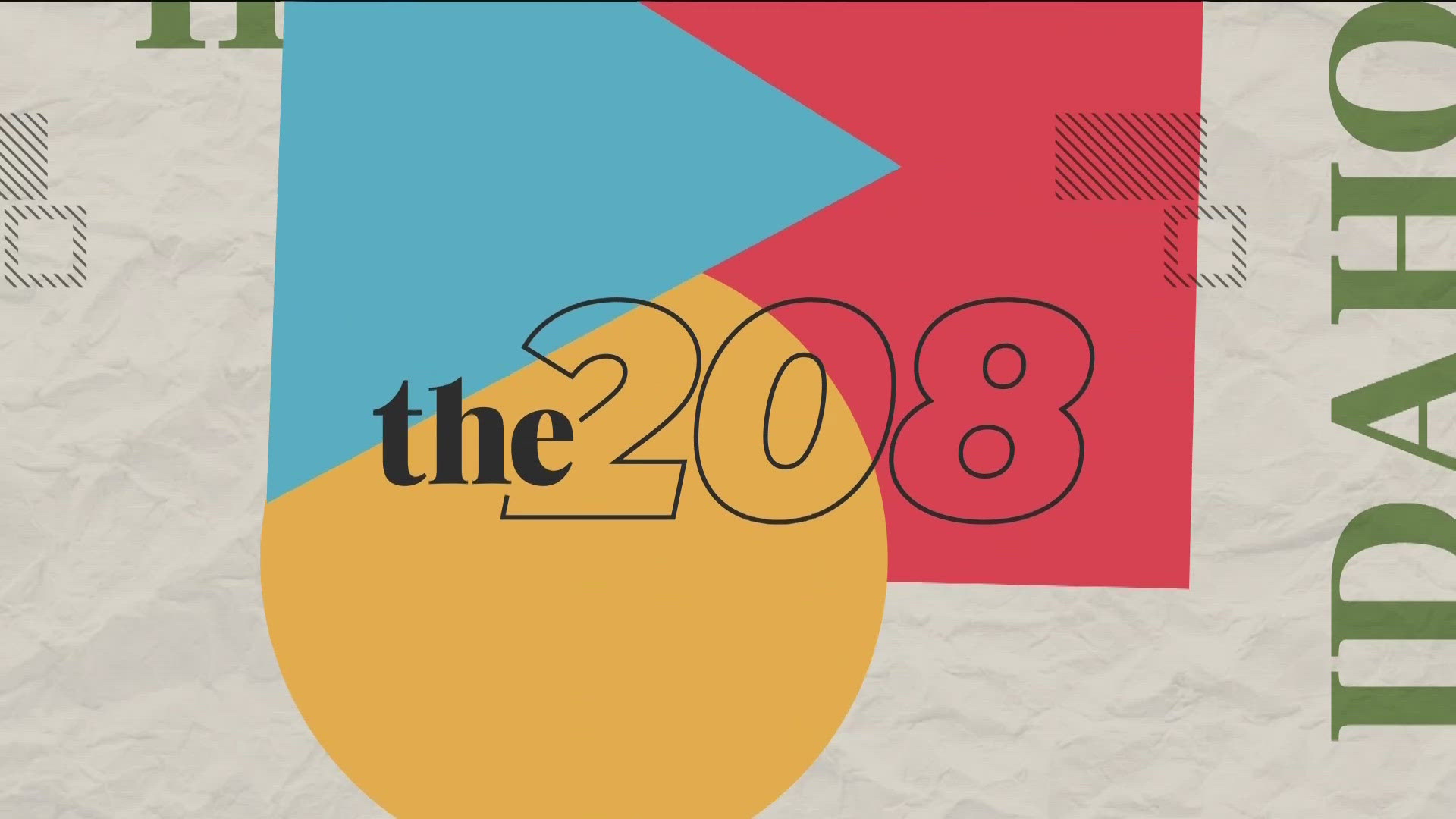BOISE, Idaho — As it currently stands, a glitch in a new Idaho law unintentionally left no path for a March of May presidential preference primary election.
So, a different format, a caucus, appears to be the answer for the 2024 Presidential Preference primary.
There are ways out of doing a caucus to return to a traditional primary, but differing sides will need to make a deal, that hasn't happened.
Idaho lawmakers are sharing concerns they said they are hearing from Idahoans. A main one: the caucus format is not as welcoming as a traditional primary.
Lawmakers have been talking about this for weeks, they have a collection of questions for the group in charge of the primary questions: The Idaho State GOP.
The Idaho GOP, specifically the state's central committee, has the power to try and are rolling with a caucus format.
The change comes as a result of decisions made in the 2023 legislative session. Lawmakers passed and Governor Brad Little signed House Bill 138 aimed at consolidating the “March presidential primary election with the May primary election date, so that all primary elections in the State of Idaho will be held on the third Tuesday in May.”
The election date being moved was also an effort to align with the elimination of all other March elections, as laid out in House Bill 292, the major property tax relief bill.
The new law inadvertently eliminated the presidential primary because of technical errors. So, lawmakers and the Secretary of State’s office worked on a trailer bill, Senate Bill 1186, to clearly add a presidential primary in May.
That trailer bill died in committee at the end of the 2023 legislative session, leaving a void for what do to with the 2024 presidential preference primary.
The current situation allows for political parties, Republicans, Democrats, Libertarians, etc., to create their own system to nominate a presidential candidate. So, the Idaho GOP moved in their summer meetings to do an early year caucus format.
If changes are going to be made, the clock is ticking. The national GOP has an October deadline to get paperwork and operation plans submitted.
A highlighted fact in this situation, lawmakers and Idaho GOP leaders operate in different spheres.
This is highlighted by a main point of contention: Idaho lawmakers passed and Governor Little signed a law that combines the March and May election days into May, generating about $3 million in taxpayer savings.
For now, the Idaho GOP said they will hold a March caucus unless lawmakers overturn house bill 138, restoring the March election date.
Doing that would undo the $2.7 million in savings consolidating the election achieved.
KTVB asked GOP Chair Dorothy Moon if having the March caucus meant more to the Idaho GOP than the $2.7 million savings accomplished in HB 138?
Via email Moon wrote: "The state party decisively settled on a March presidential nominating contest at the summer meeting in June. States that conduct their presidential nominations earlier in the cycle see economic gains, an increase in spending within the state, and an increase in per capita earnings. The economic benefits that the state of Idaho will see with an early presidential nomination contest have the potential to be much more significant than the estimated savings of HB138. An earlier primary compels presidential candidates to focus their attention — and spend some of their resources — in Idaho. It means more meals eaten in our restaurants, more nights booked in our hotels and motels, more media spending, and more time spent listening to our farmers, miners, entrepreneurs, and business leaders. When candidates know that they need to win a state’s delegates, they spend more time and resources campaigning in that state."
Attracting major presidential candidates to Idaho, and with it positive economic impact, is a consistent message and goal from the Idaho GOP as of late.
GOP party rules reflect that.
For example, for a candidate to be placed on the official ballot for the Idaho republican presidential caucus, “he or she shall submit a $50,000.00 filing fee. However, if the candidate holds at least one public campaign event in Idaho prior to the caucus that the candidate attends in-person between November 1 and caucus date of the presidential election year, the Idaho republican party will refund one-half of the filing fee.”
So, that type of offer is designed to attract candidates to Idaho.
KTVB wrote to Chair Moon about Idaho voters who are worried about the format of a caucus. Some voters tell KTVB, they prefer a traditional primary and worry the caucus will be complicated.
Moon wrote to KTVB: "We are in the process of putting together a comprehensive guide for our counties to ensure the caucus is as uncomplicated as possible, and encourages voter turnout,” Moon said. “We will be holding "firehouse caucuses", which are significantly different than the caucuses in 2012. One round of voting, not hours. "
Moon included a new website, Idahorepublicancaucus.com, there the GOP has made an FAQ page.
Moon adds, in response to format criticism, "a firehouse caucus is one of the most straightforward ways for a political party to pick a party nominee, run and funded by the party and not the state."
Finally, KTVB asked about practical challenges Idahoans could have with going to a caucus, a one-time event active-duty military or someone ill that day would have to miss. A traditional primary has early voting, absentee, etc.
Moon doubled down on her message writing in-part: “Without the caucus solution that the Republican State Central Committee adopted, nobody would be able to vote in 2024 for their presidential preference. It is our goal to re-enfranchise as many voters as possible that were disenfranchised by the removal of the presidential primary.”
A solution for a March traditional primary would be to repeal House Bill 138.
That is something that could happen if lawmakers decided to undo about $3 million in taxpayer savings.
Two sides that simply want very different things.
Join 'The 208' conversation:
- Text us at (208) 321-5614
- E-mail us at the208@ktvb.com
- Join our The 208 Facebook group: https://www.facebook.com/groups/the208KTVB/
- Follow us on Twitter: @the208KTVB or tweet #the208 and #SoIdaho
- Follow us on Instagram: @the208KTVB
- Bookmark our landing page: /the-208
- Still reading this list? We're on YouTube, too:
HERE ARE MORE WAYS TO GET NEWS FROM KTVB:
Download the KTVB News Mobile App
Apple iOS: Click here to download
Google Play: Click here to download
Watch news reports for FREE on YouTube: KTVB YouTube channel
Stream Live for FREE on ROKU: Add the channel from the ROKU store or by searching 'KTVB'.
Stream Live for FREE on FIRE TV: Search ‘KTVB’ and click ‘Get’ to download.



